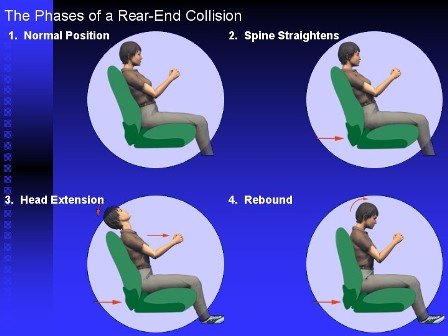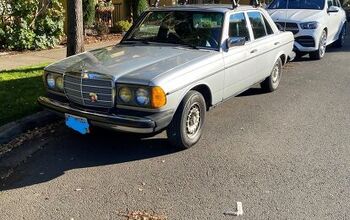City Cars Often Underperform in New Whiplash Test

The Thatcham Institute tests cars for the UK's insurance industry. Why not just rely on the pan-European NCAP (new car assessment program)? Because NCAP is only about survivability, not all aspects of car safety. One yet-missing factor which Thatchham is testing is whiplash protection. For the insurance industry, whiplash is a big issue. Not only do scamsters like to feign whiplash, but there are thousands of real, disability-causing cases each year. How will the trend towards smaller cars influence whiplash rates? According to tests published yesterday, city cars are the least effective in preventing whiplash in low speed rear end collisions. Fiat's 500 got a "marginal" rating for safety. The only two City cars to achieve an "acceptable" rating were the Renault Twingo and the Smart Fortwo. Two thirds of the (larger) supermini cars tested were rated as "marginal" or "poor". Renault's Modus was the best smaller car with a rating of "good." Thatchham: "You now have a choice at almost every price range."

More by Martin Schwoerer


































Comments
Join the conversation
I can attest they do work well in nissans. My '06 altima was totalled 3 months ago, after some yahoo with a truck rear ended us while stoped at a crosswalk. The speed limit was 40 mph on that stretch and the truck had little time to break (he was playing with his dogs in the cabin ... go figure). Both me and my wife in the altima were released from ER with minor scratches and no whiplash. Apparently the car behaved very good for a rear impact of that magnitude with a heavy duty (mid nineties F350 truck). I'd like to post a picture of the altima after, to give you an ideea about the whole thing, but I don't think I can in here. Anyway, that was a great car for that kind of a situation.
Great to hear.. I wonder how expensive these active head restraints are to implement.. it might not necessarily stop death, but having safety features that really do work is always a good idea. (I'm looking at you, "Emergency Brake Assist" - one of the most irritating brake "features" I've ever experienced...) I've seen horrors from what should be "simple" 30-40 MPH wrecks, when the idiot causing the wreck just happens to be driving a tank that literally runs over and obliterates anything "in it's way..."
Emergency brake assist saved some young teen boy in 2005. I know, I was the driver of my 2005 Prius at the time the boy meandered across a 2 lane road with a wheelbarrow. He did swerve a tad at the last minute, but I know in my heart of hearts that the Prius saved him. Missed him by inches. It's a well proven fact that we humans don't hit the anchors hard enough in a panic stop most of the time. Even 3 years later, I blanche when I think of what would have happened had we taken the Sonata to town on that trip instead of the Prius. Our new Sonata has brake assist. I won't have a car without it now. BTW the new Kia Optima apparently has very good overall safety, and was the only midsized car recently tested to do well in the whiplash test, due to the quality (and design qualities) of the seats.
I guess it's very personal, but I can't stand BA. Brake force distribution is an awesome feature that every vehicle should have, but I have a personalized driving style.. just because I press the brake quickly doesn't mean there's reason to panic - it took me weeks to get "used" to this feature on my latest car, and sometimes I still manage to unnecessarily squeak tires.. the car brakes from 60 in under 122 feet, I'm not sure what else is needed, really.